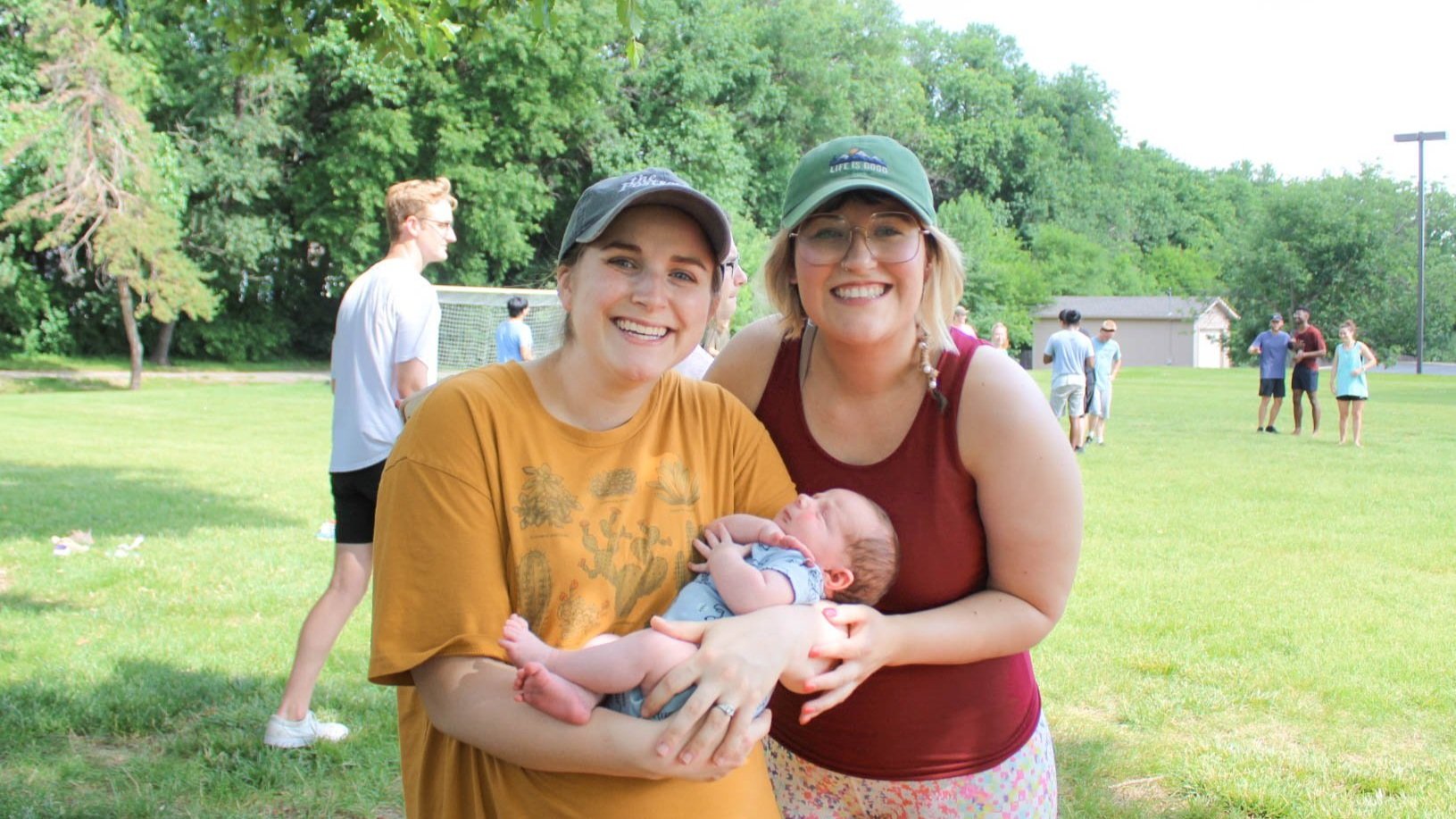Hungary and Romania Mission Trip Reflection
“I needed to be prepared and take ownership of this mission”
Recently, Midtown Baptist Temple had the opportunity to travel to Romania and Hungary to support our missionary families, the Howeys and the Horvaths. I had the privilege of being a part of the team that went. In preparation for this trip, Jon Kindler held meetings in his home to encourage and prepare us in the Word. He sent us emails telling us what we needed to have prepared, along with the agenda for that meeting. Before the first meeting, we were to read the first four chapters of Tortured for Christ. He also shared documents that explained the culture of both countries. Immediately, I dropped the ball. Very first meeting and I didn’t read anything because I only half read Jon’s email. In all honesty, I didn’t think I had to. I didn’t think it was important for me to look closely into all of those things because I wasn’t the leader. I was just ready to be a servant. That felt like the right heart attitude to have; servants just follow the leader and do what they are told. They are submissive and flexible; they don’t really have to be prepared for much. Servant leaders however, are prepared. They lead by serving. They are vigilant, and they are leading by example, just as Christ did.
Physically, I was ready to carry any load but spiritually, I was a leach. In that meeting, I didn’t have anything to contribute to the conversation and I really couldn’t lie about it either. I have been out of the state on other mission trips but never out of the country. On those specific mission trips, I was more of a servant, and that’s okay. I was learning how to be a servant and I followed my Paul(s). However, given the nature of this trip and the current unrest that we were going to be so near to, I realized that following the leader was not going to cut it. I needed to be prepared and take ownership of this mission; we all did. Our mission was to go and be a help to one family that has not had visitors in 11 years, and to be an encouragement to another family who have uprooted their home and planted themselves in an area where even communicating is a struggle. Being a help to them meant not really asking “what can I do?” but being present and already seeing the ways that we can fill any lack. So, I read half the book the next day and read the dang documents about the culture! No more riding the coattails of leadership.
“God doesn’t care about cultural norms and He’s not bound by any limitation”
We first got to visit Doug and Camelia Howey in Romania. Camelia is Romanian and Doug is a missionary from Kansas City Baptist Temple. The two met on the mission field and have been laboring together for about 11 years. Every year, they throw an Easter event in the town square to tell people about the death, burial, and resurrection of Jesus Christ, the Son of God. There is always an amazing turnout, and this year, we got to support the church in this event. When the day came, there was a 100% chance of rain — I could hear Camelia whispering prayers against it in Romanian. We saw the clouds roll in and we felt the temperature drop, but God stopped the rain for his prayer warrior of a daughter! I had some anxiety about this event because this would be our first time really interacting with Romanians and experiencing the cultural differences we had heard about. We had been warned not to expect a smile or wave from people that have not had a chance to establish trust in us. I expected cold shoulders being both a stranger and an American who cannot speak their language. How do you minister? How do you preach? In my desperation to communicate, I found myself still cheesing at everyone I saw. To my surprise, everyone that I smiled at, smiled back! Throughout the entirety of the trip, I even experienced several situations where people tried to talk with me. I reluctantly had to let them know I could only speak English. What a lame reality when most Europeans know at least 3 languages! We wore shirts that let them know we were there to help. We ministered and communicated in ways that didn’t have to involve speaking; we painted children’s faces, laid out Easter eggs, and brought out KC Wolf to make everyone laugh. Through our efforts to display Christ, I believe we were able to establish a small level of trust amongst the people. They knew our intentions and God had given us favor! God doesn’t care about cultural norms and He’s not bound by any limitation. The gospel was shared through song, storytelling, and a puppet show. Romanian worship music played live throughout the entire event and flyers to attend the evening Easter service were given out. These flyers did lead one family to service!
We got to take the food donations from this event and give them to the Ukrainian refugees. This experience was both joyful and heart wrenching. We made our way to the kitchen and found the women preparing dinner. There were a handful of girls who looked our age (somewhere in their twenties) and it was upsetting to think about the reality they are facing in comparison to ours. Ali Bustos, a member of MBT, had personally hand crafted dolls for each child at the camp. We gave them to the women and tears streamed down their faces. We embraced them and asked them what we could be praying for. Their response was that they just want to go home. They want protection over their families that remain in Ukraine and for this war to come to an end. We prayed with them and they asked us to come back and have lunch with them as a thank you. Unfortunately they fell ill the day we were to return, but I was thankful to see those women at church the day before.
In Hungary, we met up with Brooke and Kale Horvath, missionaries that recently moved to Hungary. Kale had a heart for Hungary partially because his family originated from there. He had been on several mission trips to Hungary, and God had called him there. Kale gave us the lay of the land and an understanding of what he does from day to day to reach the nation. Planting a church in the states usually looks like taking a small team and starting a church with just you all in a home. You would spend your days doing street evangelism and inviting others to join. Slowly, but surely you get a few people who get plugged in and you add to the church. That progresses into bible studies, a church building, and maybe even an opportunity to reach college students with a Friends of Internationals group on campus. This is always a huge work, it’s difficult, slow growing and can be discouraging at times. God always has to be in the work or we will grow weary and it will fail. For missionaries overseas, this process is even slower and the work requires even more intentionality. Kale is spending a huge chunk of time taking classes to just learn the language. It’s pretty hard to evangelize if you don’t speak the same language! If only we could be like the Apostles in Acts 2! If you heard Kale and Brooke speak Hungarian, you would think they were pretty fluent. Even their 4 year old son, Judah couldn’t understand why he had to speak to us in English. They told us that the Hungarian language is pretty complex and concepts can be hard to understand. In comparison to a native, they know just enough to get by. Learning and attempting to speak the language of the people of Hungary is a way to show love. Hungarians appreciate Americans truly trying and they are patient with those who are learning. Through this effort, Kale gets the opportunity to talk about why he wants to learn; and that opens up conversations about the gospel. This has provided a lot of opportunities for them to establish trust and make relationships with the people in Hungary. God has given Kale and Brooke favor with the Hungarian people to bypass cultural norms. They always have people in their home; this is a vulnerable thing for Europeans. You don’t just have people in your home, and Hungarians don’t usually want to be in your home so quickly. Through God’s orchestration, and quite literal redirection, Brooke has even gotten the opportunity to teach a Hungarian florist English in exchange to be taught Hungarian.
“…I can be content in simply obeying the Lord”
The intentionality of both the Howeys and the Horvaths reminds me of Paul and Silas in Acts 16. Their hearts were set to being obedient to God, so they made a plan to go and reach different parts of the world. They didn’t know exactly where they would land or what to expect, but they were intentional in going. As they went, the Holy Spirit gave them direction. They had to move forward in faith in order for the Holy Spirit to redirect them and show them where they would meet those whose hearts were open to the Lord. I see this in the Howeys and the Horvaths. They went into the mission not knowing much of anything except that God called them to be there. They are constantly planning ways to connect with people. The entire time we were in Romania, Doug would intentionally go to certain places because he knew he would run into someone he had been praying for. In one of our morning devotions, Micah Wildasin said that reaping and sowing implies a season of waiting. I look at the Howeys who have been sowing for 11 years and the Horvaths who have so much sowing ahead of them, and I am encouraged by their anticipation to reap. Both families showed incredible faith in God and peace that passes understanding.
It can be so easy to get frustrated with God or even doubtful of the things He has called you to when you don’t see results in the timing that you think you should. The Howeys and the Horvaths showed me that I can be content in simply obeying the Lord. God is with us everywhere we go, in every season we’re in, and He is working all things together for good. We can trust in those promises and in due season, we will reap.
Jasmin Robinson is a member of MBT and a part of C&YA. She is a part of the praise team and gospel choir. She is also a part of a midtown KC women’s Bible study.





